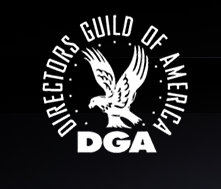By Ray Pride Pride@moviecitynews.com
65th Annual DGA Awards Feature Film Nominees Announced
LOS ANGELES, CA: On January 8, 2013, DGA President Taylor Hackford announced the five nominees for the DGA Award for Outstanding Directorial Achievement in Feature Film for 2012.
 “DGA members have chosen an incredibly rich and varied group of filmmakers to nominate for this year’s Outstanding Directorial Achievement in Feature Film Award. These directors represent the highest standard of filmmaking, and their films are a testament to artistic achievement, innovative storytelling and the passion that filmmakers share with their audiences,” said Hackford. “Being nominated by their peers is what makes this award particularly meaningful for directors, and I congratulate all of the nominees for their outstanding work.”
“DGA members have chosen an incredibly rich and varied group of filmmakers to nominate for this year’s Outstanding Directorial Achievement in Feature Film Award. These directors represent the highest standard of filmmaking, and their films are a testament to artistic achievement, innovative storytelling and the passion that filmmakers share with their audiences,” said Hackford. “Being nominated by their peers is what makes this award particularly meaningful for directors, and I congratulate all of the nominees for their outstanding work.”
The winner will be named at the 65th Annual DGA Awards Dinner on Saturday, Febnuary 2, 2013, at the Ray Dolby Ballroom at Hollywood & Highland.
The nominees are (in alphabetical order):
Argo
(Warner Bros. Pictures)
Mr. Affleck’s Directorial Team:
- Unit Production Manager: Amy Herman
- First Assistant Director: David Webb
- Second Assistant Director: Ian Calip
- Second Second Assistant Directors: Clark Credle, Gavin Kleintop
- First Assistant Director (Turkey Unit): Belkis Turan
This is Mr. Affleck’s first DGA Feature Film Award nomination.
Zero Dark Thirty
(Columbia Pictures)
Ms. Bigelow’s Directorial Team:
- Unit Production Manager: Colin Wilson
- First Assistant Director: David A. Ticotin
- Second Assistant Directors: Ben Lanning, Sarah Hood
- First Assistant Director (Jordan Unit): Scott Robertson
- Second Assistant Directors (Jordan Unit): Jonas Spaccarotelli, Yanal Kassay
- Second Second Assistant Director (Jordan Unit): Tarek Afifi
- Unit Production Manager (India Unit): Rajeev Mehra
This is Ms. Bigelow’s second DGA Feature Film Award nomination. She won the DGA Award for Outstanding Directorial Achievement in Feature Film for The Hurt Locker in 2009.
Les Misérables
(Universal Pictures)
Mr. Hooper’s Directorial Team:
- Unit Production Manager: Patrick Schweitzer
- First Assistant Director: Ben Howarth
- Second Assistant Director: Harriet Worth
- Second Second Assistant Director: Dan Channing Williams
This is Mr. Hooper’s second DGA Feature Film Award nomination. He won the DGA Award for Outstanding Directorial Achievement in Feature Film for The King’s Speech (2010) and was previously nominated for the DGA Award for Outstanding Directorial Achievement in Movies for Television/Mini-Series for John Adams in 2008.
Life of Pi
(Twentieth Century Fox)
Mr. Lee’s Directorial Team:
- Unit Production Manager: Michael J. Malone
- Unit Production Manager (Taiwan): Leo Chen
- First Assistant Directors: William M. Connor, Cliff Lanning
- Second Assistant Directors: Robert Burgess, Ben Lanning
- Unit Production Manager (India Unit): Sanjay Kumar
- First Assistant Director (India Unit): Nitya Mehra
- Second Assistant Director (India Unit): Ananya Rane
- Second Second Assistant Directors (India Unit): Namra Parikh, Freya Parekh
- Second Assistant Directors (Montreal Unit): Derek Wimble, Renato De Cotiis
This is Mr. Lee’s fourth DGA Feature Film Award nomination. He won the DGA Award for Outstanding Directorial Achievement in Feature Film for Brokeback Mountain (2005) and Crouching Tiger, Hidden Dragon (2000) and was nominated for Sense and Sensibility in 1995.
Lincoln
(Dreamworks Pictures/Twentieth Century Fox)
Mr. Spielberg’s Directorial Team:
- Unit Production Manager: Susan McNamara
- First Assistant Director: Adam Somner
- Second Assistant Director: Ian Stone
- Second Second Assistant Directors: Eric Lasko, Trevor Tavares
This is Mr. Spielberg’s eleventh DGA Feature Film Award nomination. He won the DGA Award for Outstanding Directorial Achievement in Feature Film three times for Saving Private Ryan (1998), Schindler’s List (1993) and The Color Purple (1985). He was also nominated in this category for Munich (2005), Amistad (1997), Empire of the Sun (1987), E.T.: The Extra Terrestrial (1982), Raiders of the Lost Ark (1981),Close Encounters of the Third Kind (1977) and Jaws (1975). Mr. Spielberg was honored with the DGA’s Lifetime Achievement Award in 2000.
The DGA Award for Outstanding Directorial Achievement in Feature Film has traditionally been one of the industry’s most accurate barometers for who will win the Best Director Academy Award.
Only six times since the DGA Awards began in 1948 has the Feature Film winner not gone on to win the corresponding Academy Award.
The six exceptions are as follows:
- 1968: Anthony Harvey won the DGA Award for The Lion in Winter while Carol Reed took home the Oscar® for Oliver!
- 1972: Francis Ford Coppola received the DGA’s nod for The Godfather while the Academy selected Bob Fosse for Cabaret.
- 1985: Steven Spielberg received his first DGA Award for The Color Purple while the Oscar® went to Sydney Pollack for Out of Africa.
- 1995: Ron Howard was chosen by the DGA for his direction of Apollo 13 while Academy voters selected Mel Gibson for Braveheart.
- 2000: Ang Lee won the DGA Award for his direction of Crouching Tiger, Hidden Dragon while Steven Soderbergh won the Academy Award for Traffic.
- 2002: Rob Marshall won the DGA Award for Chicago while Roman Polanski received the Academy Award for The Pianist.
The winner in the Feature Film category will be announced at the 65th Annual DGA Awards dinner and ceremony on Saturday evening, February 2, 2013, at the Ray Dolby Ballroom at Hollywood & Highland. The DGA Awards will be hosted by director/actor/producer Kelsey Grammer.













